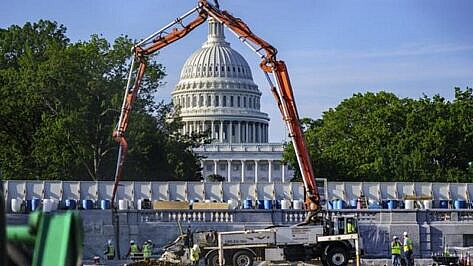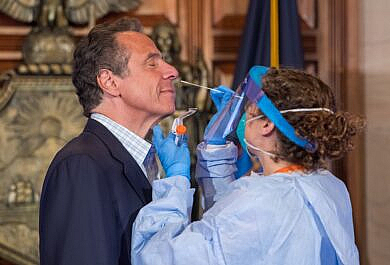One bipartisan infrastructure effort dies, another is forged. The back and forth on infrastructure negotiations continue, with diminishing scale.
Summary
After talks between the Senate GOP and President Biden faltered, a bipartisan group of senators unveiled an agreement on infrastructure legislation last week which immediately drew criticism from both sides.
- The bipartisan group were expected to pitch the plan to the entire Republican senate conference this week.
- Vermont Sen. Bernie Sanders already came out against the plan, saying it “doesn’t do enough” and it “shields the wealthy from tax increases.”
- It also faced dim prospects in the House, with Speaker Pelosi saying it would be difficult to pass the compromise “unless we know there is more to come.”
- A survey of Capitol Hill staffers suggests insiders expect a scaled-back infrastructure bill to pass, and little else of Biden’s ambitious agenda to get Congress’ approval. This tracks with a Politico report on Senate Republicans’ calculations that passing a large infrastructure package could help stop the rest of Biden’s big-ticket agenda.
![]()
- CNN used a recent report by the American Society of Civil Engineers as an opportunity to hype President Biden’s infrastructure plan, cheerleading his efforts to build a “modern and sustainable infrastructure, focusing on green energy, schools, and “traditional infrastructure.”
- Washington Post highlighted the growing discontent among the liberal wing of the Democrat Party for President Biden seeming to ignore them during negotiations.
![]()
- OANN, similar to Washington Post, focused on the divisions within Senate Democrats, with some of the more liberal members complaining Biden’s plan don’t do enough on climate change while moderate members are balking at the price tag.
- The Washington Times reported on concern among the Senate GOP that the bipartisan compromise ironed out will give Biden cover to pass his much larger bill and claim bipartisan support.
Author’s Take
Investments on infrastructure generally can find bipartisan support in Congress and in public opinion. Yet the new “pro-socialist” wing of the Democrat Party has driven a hard bargain, insisting on policies that fall far outside the Overton Window. Meanwhile the most ardent conservatives and budget hawks in the Republican Party recoil at any new spending. The loudest voices within their respective caucuses are slowly killing the political opportunity for a compromise.
© Dallas Gerber, 2021






